Foods That Can Cause Acne, According to Dermatologists
Perhaps it's time to start a food diary?
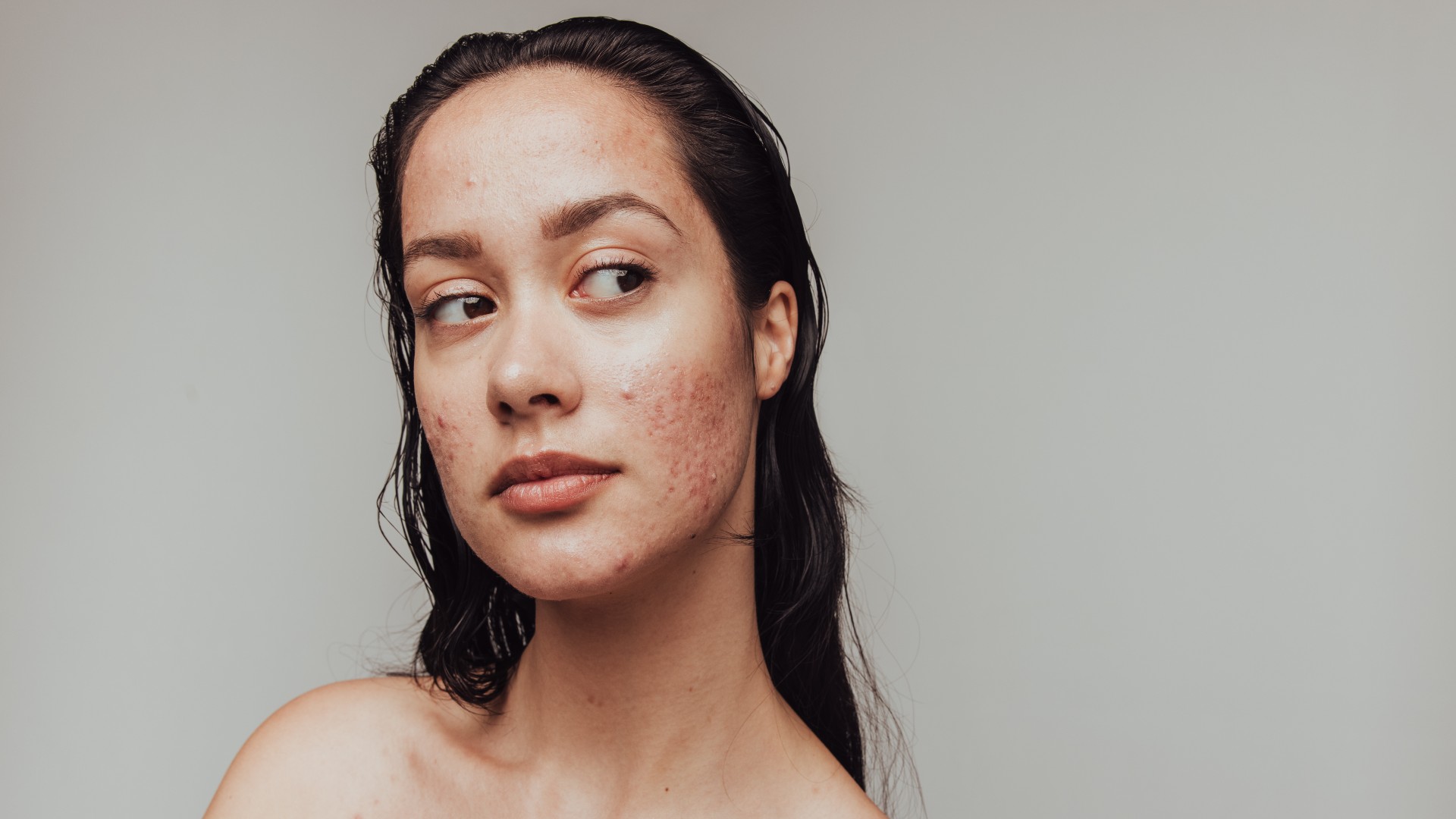
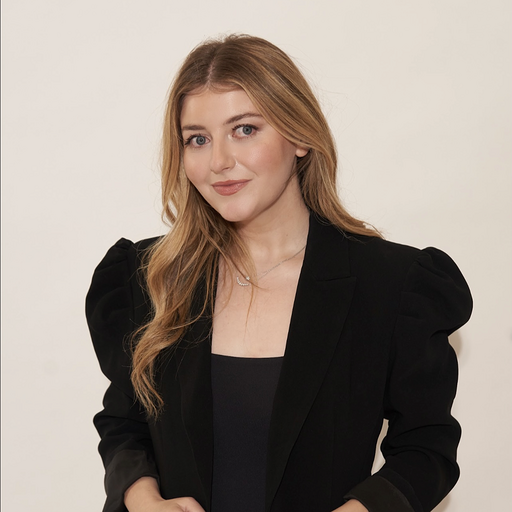
Acne can be caused by a wide, wide, wide variety of factors. Your skincare routine could need a revamp, your hormones could be out of whack, your pillowcase could be dirty—the reason for your clogged pores and underground pimples are plentiful. And while it’s not always the case, it is possible that your diet could be aggravating the situation. There are a handful of foods that have been proven to have a correlation to acne. The usual suspects? Dairy, sugar, and unrefined carbs. But there’s not a cut-and-dry list of what to avoid—it really depends on how your body reacts to particular foods.
“Guidelines are good, but it’s important to really understand how your skin changes as your diet evolves,” says board-certified dermatologist and founder of Hudson Dermatology and Laser Surgery Dr. Dhaval Bhansuali. “Anything sudden, like going keto or fully vegan, can certainly lead to skin changes as your body tries to adjust to the new normal.” That’s why you should keep a food diary, track your breakouts, and of course, work with a board-certified dermatologist.
But if you want to get an idea of common triggers, scroll ahead. Top doctors are breaking down the most common foods that cause acne. (For more information on how to treat acne, check out our favorite spot treatments or read up on our guide to hormonal acne.)
Does Food *Really* Cause Acne?
Think of food like a piece of the puzzle. It’s certainly not the sole cause of breakouts, but it can certainly contribute—especially when dealing with adult female acne. “We are really in the midst of an epidemic of adult acne. The reasons for this are varied, but it’s likely a combination of hormonal dysregulation, stress, genetics, unadapted cosmetics, dysregulated microbiome, and more,” says board-certified dermatologist Dr. Evan Rieder. “Diet is part of the picture, but for most people, not the primary culprit.”
Foods That Cause Acne
Sugar
I’m just as sad about this as you are, but candies, cakes, cookies, and desserts in general are kind of the enemy for clear skin. Reason being: “High glycemic index foods tend to be associated with breakouts,” says Dr. Bhanusali. These types of food will increase insulin and insulin-like growth factor 1, which in turn is going to heighten oil production and make your skin cells stickier. “This sequence of events causes occlusion of hair follicles and blackhead and whitehead formation,” adds Dr. Rieder.
Processed Foods
The bread basket is tempting, no doubt about it. Unfortunately processed foods and unrefined carbohydrates like white bread, white pasta, pizza, and even potato chips are “especially bad for acne,” says board-certified dermatologist Dr. Kenneth Howe. Similar to sugar, processed foods and starches have a high glycemic index. “That causes our body to release more insulin and those high insulin levels set off a cascade of hormonal releases that eventuate in acne breakouts.” You’re better off substituting these foods for brown rice or 100 percent whole grain breads.
Dairy
Let’s start off with the good news. Cheese, aka the best item in the dairy family, might not break you out. A half win is a win, right? “While dairy consumption in general has been associated with acne, studies show conflicting results, making it difficult to draw clear conclusions. Cheese is exonerated by some studies, while other studies include it,” says Dr. Howe.
Stay In The Know
Get exclusive access to fashion and beauty trends, hot-off-the-press celebrity news, and more.
Milk however, particularly skim milk, seems to be the main acne culprit. “Skim milk actually showed a stronger acne association than whole milk. The reason for that is skim milk consumption is correlated with higher blood levels of insulin-like growth factor (IGF-1), and IGF-1 stimulates greater oil production in the skin,” explains Dr. Howe. “No one knows why skim milk has worse acne effects, but the study authors speculated that it might be due to the processing skim milk undergoes."
Whey Protein
“This is a new phenomenon and we are seeing it more and more often,” says Dr. Bhanusali. “There were reports of whey protein causing increased acne in patients.” That said, it’s also worth noting that those consuming whey protein might already be the target group for hormonal acne. “Protein powders are often consumed in large quantities by teenagers and young adults who are already susceptible to acne,” says Dr. Rieder. “This can be a recipe for a flare.” Thankfully, the fix is easy; switch to a plant-based protein option.
What Foods are Good for Acne-Prone Skin?
In the same way the sugary, starchy, and dairy-filled foods can contribute to acne, there are certain foods that can actually help minimize acne. “A diet rich in foods with a low glycemic index and that is anti-inflammatory can be good for conditions like acne,” says Dr. Rieder. “This includes foods like fresh vegetables, beans, and some types of fresh fruit.”
You might also want to seek out food rich in Omega-3 polyunsaturated fatty acids, such as fish, vegetable oils, nuts, flax seeds, sweet potatoes, and leafy greens. Dr. Howe explains that these types of foods “might” help acne by reducing inflammation.
Meet the Dermatologists
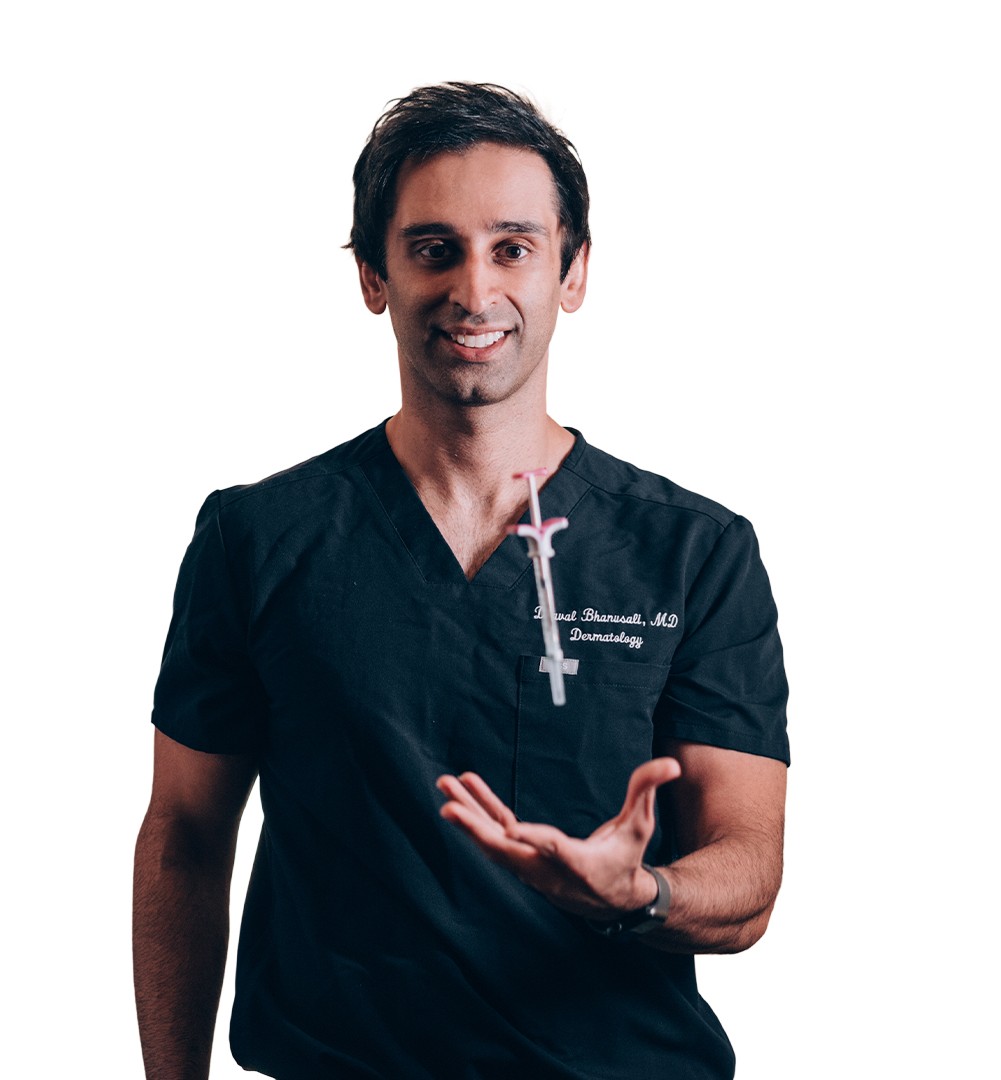
Dr. Dhaval Bhanusali is a leading Dermatologist based in Hudson Yards/ Hells Kitchen. As a member of the prestigious Medical Scholars program at Michigan State University, Dr. Bhanusali was accepted into medical school at the age of seventeen and graduated college in three years. He was awarded both the Spartan scholarship, as well as the Arthur L. Foley, MD PhD scholarships for his outstanding academic achievements. After finishing medical school, Dr. Bhanusali completed his Dermatology residency at Mount Sinai hospital in New York City. His primary focus is hair loss/ restoration, as well as medical and cosmetic Dermatology. During his career, Dr. Bhanusali has been featured on Elite Daily, Buzzfeed, Yahoo, Askmen, the Atlantic, People Magazine, Teen Vogue, Bustle, Self, WebMD, US Weekly, Allure, and countless other media outlets. His novel laser techniques and humanitarian efforts were featured on ABC and FOX. His award winning research has been presented around the world and he currently serves as a medical expert for many companies in the field, including Neutrogena, Clean & Clear, and numerous hairloss companies Dr. Bhanusali has become a go-to for celebrities and fashion models and most recently helped launch Amazon's first skincare line- Fast Beauty Co. He has helped run FDA clinical trials and studies.He has worked with both the NY Mets and NY Yankees to promote safe skin practices and serves as a member of the AAD’s media advisory team.
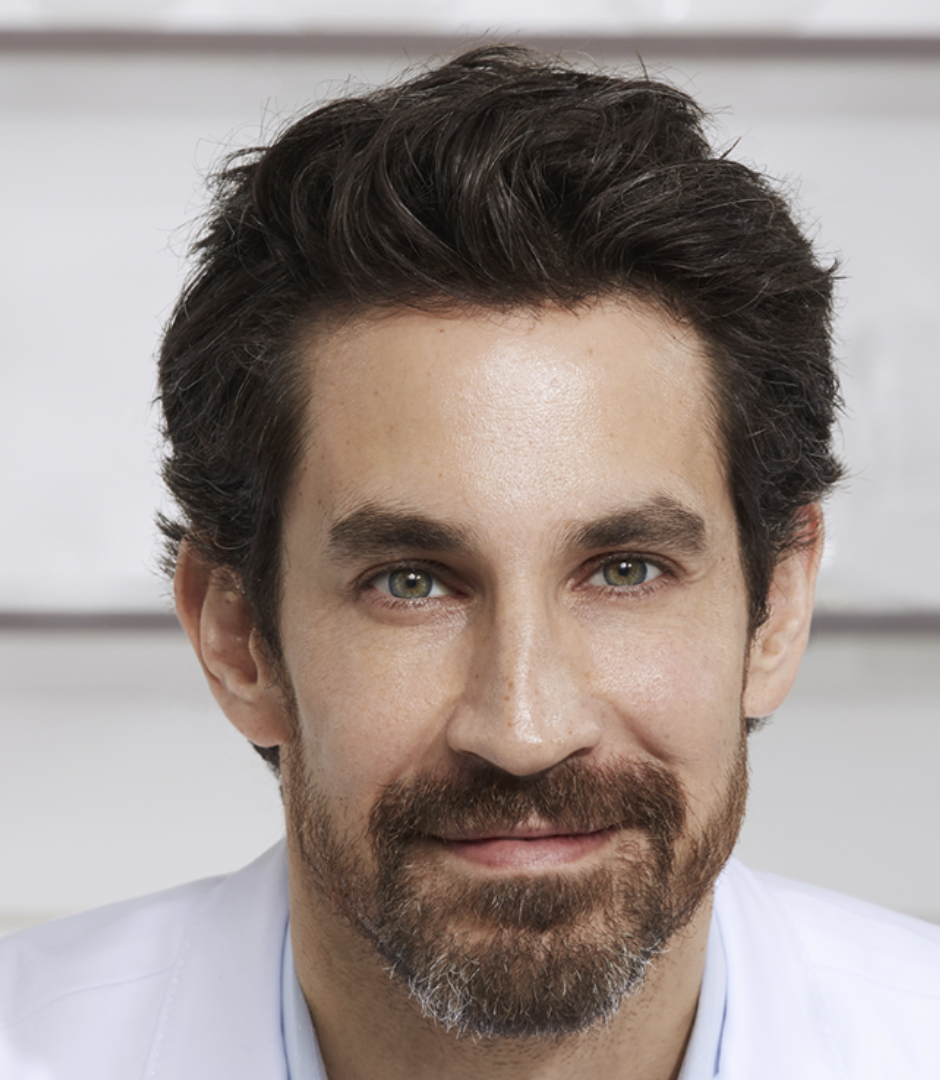
Dr. Evan Rieder is one of three American physicians to be dual board-certified in dermatology and psychiatry. He is a graduate of Dartmouth College and the University of Pennsylvania School of Medicine, as well as residency programs in psychiatry and dermatology at the New York University School of Medicine. Dr. Rieder has expertise in cosmetic dermatology, skin care, general and surgical dermatology, and nail disorders. He is known for both his ability to customize cutting edge technology to achieve natural cosmetic results as well as his practical and collaborative approach to the treatment of skin disease. As a psychiatrist, his calm demeanor and selective use of mind/body techniques put people at ease and when necessary, allow him to understand the subtle aspects of skin and beauty. His strong academic training, sense of artistry, and gimmick-free approach to aesthetics make Dr. Rieder a sought-after dermatologist for a discrete and sophisticated clientele. An expert in the confluence of aesthetics and psychology, Dr. Rieder has published extensively in the dermatology and psychiatry literature and is regularly called upon to educate his peers. He is the editor of two major cosmetic dermatology textbooks, Essential Psychiatry for the Aesthetic Practitioner (1st Ed) and Cosmetic Dermatology (3rd Ed). He is a highly valued consultant and media expert, having worked extensively with industry to launch novel skin care and pharmaceutical lines. He is the host of the Dermatology Show on Sirius XM Dr. Radio, and is regularly featured in print and online media including The New York Times, Gentleman's Quarterly, Vogue, and Allure. Dr. Rieder is a faculty member of the prestigious New York University Department of Dermatology, and practices cosmetic and medical dermatology in Manhattan. He is an active member of several medical organizations including the American Academy of Dermatology, the American Society for Dermatologic Surgery, and the American Psychiatric Association.

As a cosmetic dermatologist, Dr. Howe is known for his light touch. He believes that smaller, earlier interventions allow patients to maintain a youthful appearance while at the same time preventing or slowing further aging. Calm and reassuring in manner, Dr. Howe is an expert in guiding patients through the variety of available options, from the simplest topical agents to cutting edge procedures. He values maintaining an open dialogue between doctor and patient throughout this process. The goal of all aesthetic treatments, in Dr. Howe’s view, is to achieve and maintain a completely natural look. What is done must be dictated in each case by careful study of the anatomy and structure of the individual face. This approach is particularly noteworthy in Dr. Howe’s use of injectable fillers and toxins, of which he is a recognized expert.

Samantha Holender is the Senior Beauty Editor at Marie Claire, where she reports on the best new launches, dives into the science behind skincare, and shares the breakdown on the latest and greatest trends in the beauty space. She's studied up on every ingredient you'll find on INCI list and is constantly in search of the world's glowiest makeup products. She's constantly tracking the biggest nail and hair trends to pop up in the beauty space, going backstage during fashion weeks, tracking celebrity looks, and constantly talking to celebrity hair stylists, nail artists, and makeup artists. Prior to joining the team, she worked as Us Weekly’s Beauty and Style Editor, where she stayed on the pulse of pop culture and broke down celebrity beauty routines, hair transformations, and red carpet looks. Her words have also appeared on Popsugar, Makeup.com, Skincare.com, Delish.com, and Philadelphia Wedding. Samantha also serves as a board member for the American Society of Magazine Editors (ASME). She first joined the organization in 2018, when she worked as an editorial intern at Food Network Magazine and Pioneer Woman Magazine. Samantha has a degree in Journalism and Mass Communications from The George Washington University’s School of Media and Public Affairs. While at GWU, she was a founding member of the school’s HerCampus chapter and served as its President for four years. When she’s not deep in the beauty closet or swatching eyeshadows, you can find her obsessing over Real Housewives and all things Bravo. Keep up with her on Instagram @samholender.
-
 The 'You' Season 5 Cast Features People From Joe's Past, a New Love Interest, Madcap Twins, and More
The 'You' Season 5 Cast Features People From Joe's Past, a New Love Interest, Madcap Twins, and MoreHere's what to know about the star-studded final installment of the Netflix hit.
By Quinci LeGardye
-
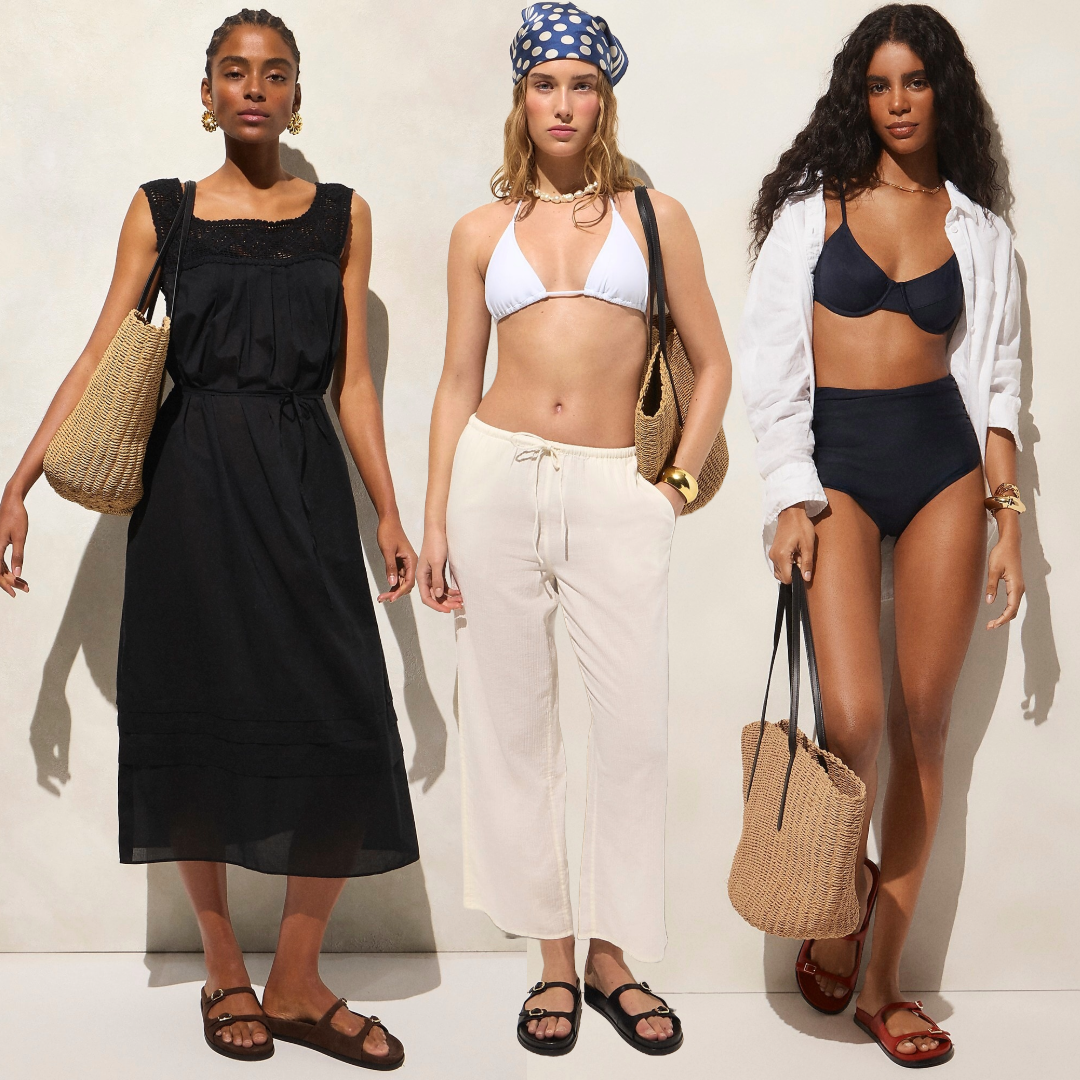 These J.Crew Sale Finds Basically Packed My Suitcase for Me
These J.Crew Sale Finds Basically Packed My Suitcase for MeI'm ready for my next vacation.
By Brooke Knappenberger
-
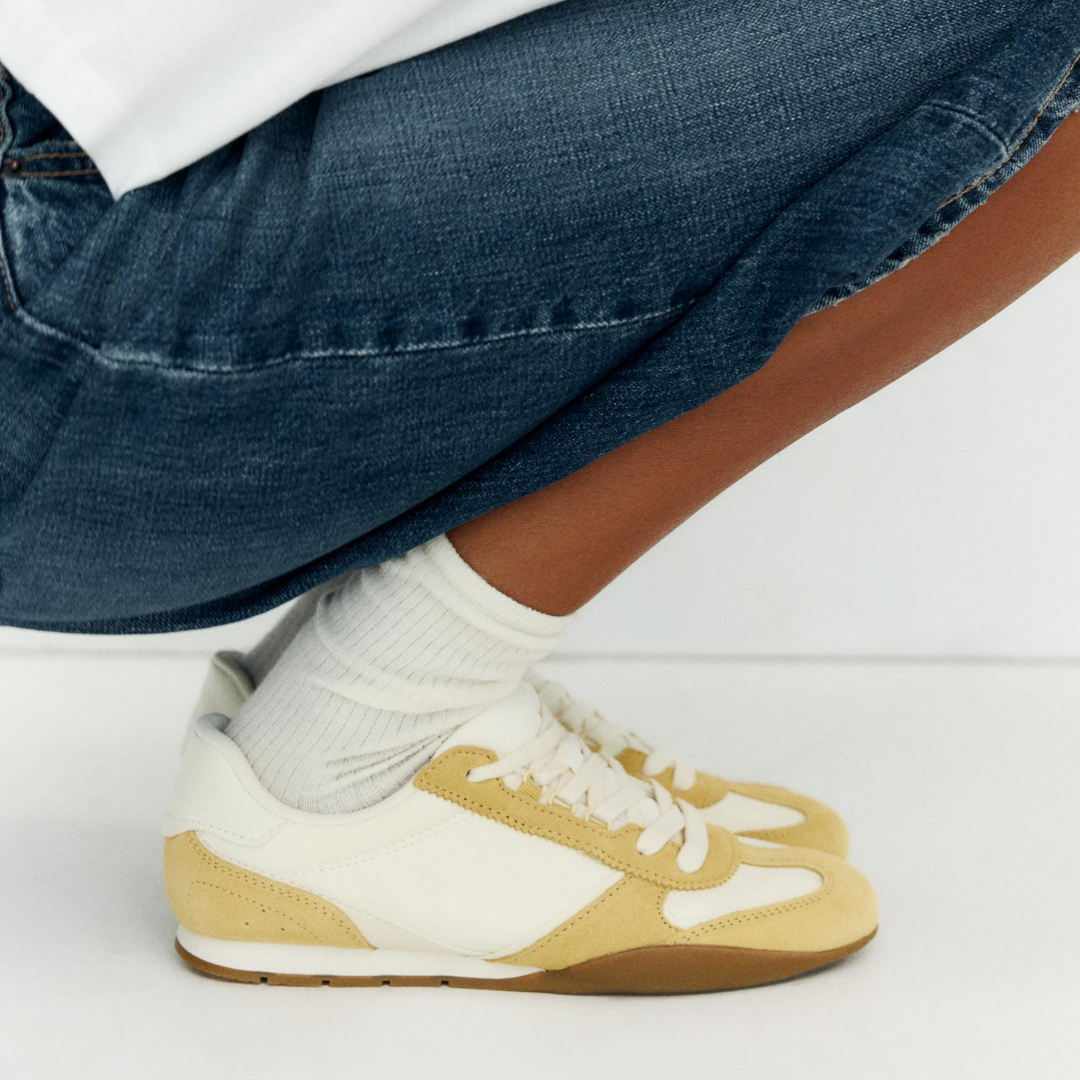 Summer's Sportiest Shoe Trend Is Worth Shopping More Than Once
Summer's Sportiest Shoe Trend Is Worth Shopping More Than Once17 pairs from Nordstrom, Mango, and Zara I'm shopping now.
By Julia Marzovilla
-
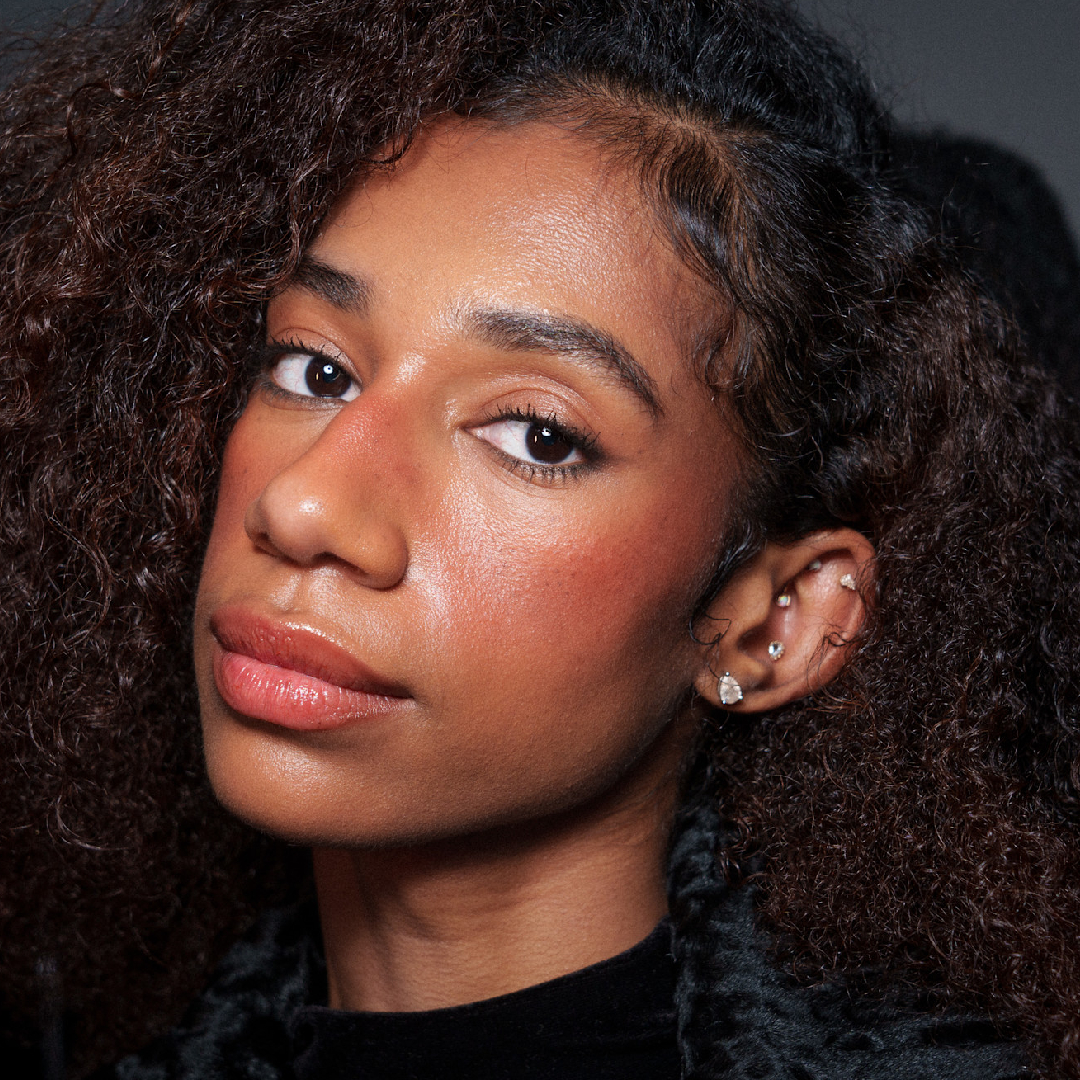 The 10 Best Hair Growth Shampoos of 2025, Tested by Editors
The 10 Best Hair Growth Shampoos of 2025, Tested by EditorsExpensive and healthy-looking hair on lock.
By Marisa Petrarca
-
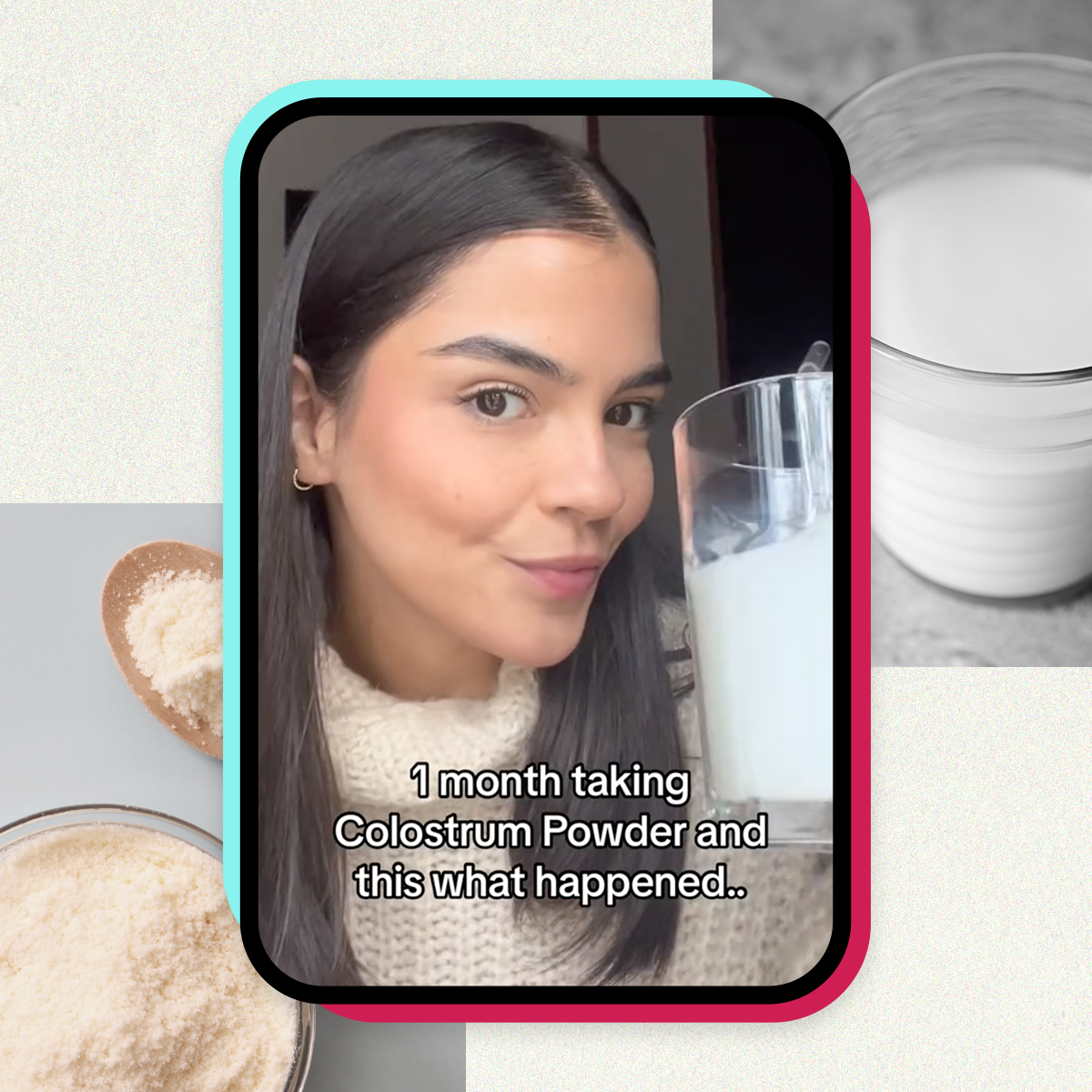 Is Colostrum the New Collagen?
Is Colostrum the New Collagen?Doctors and wellness professionals have a lot to say about TikTok's supplement of the moment.
By Gabrielle Ulubay
-
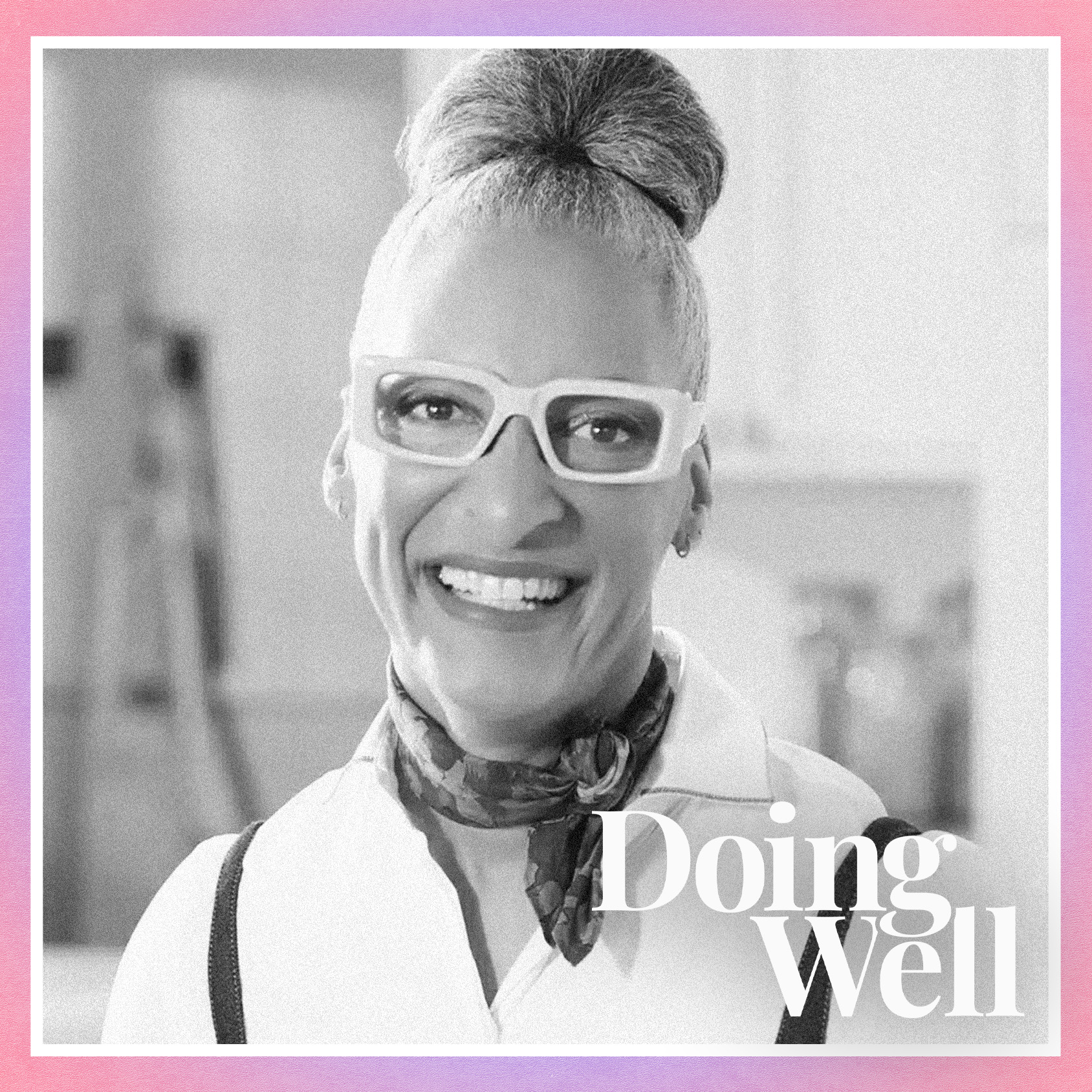 Carla Hall Plans to Live Until She's 104 Years Old—and Her Strategy Is Sound
Carla Hall Plans to Live Until She's 104 Years Old—and Her Strategy Is Sound"I have marked my calendar."
By Gabrielle Ulubay
-
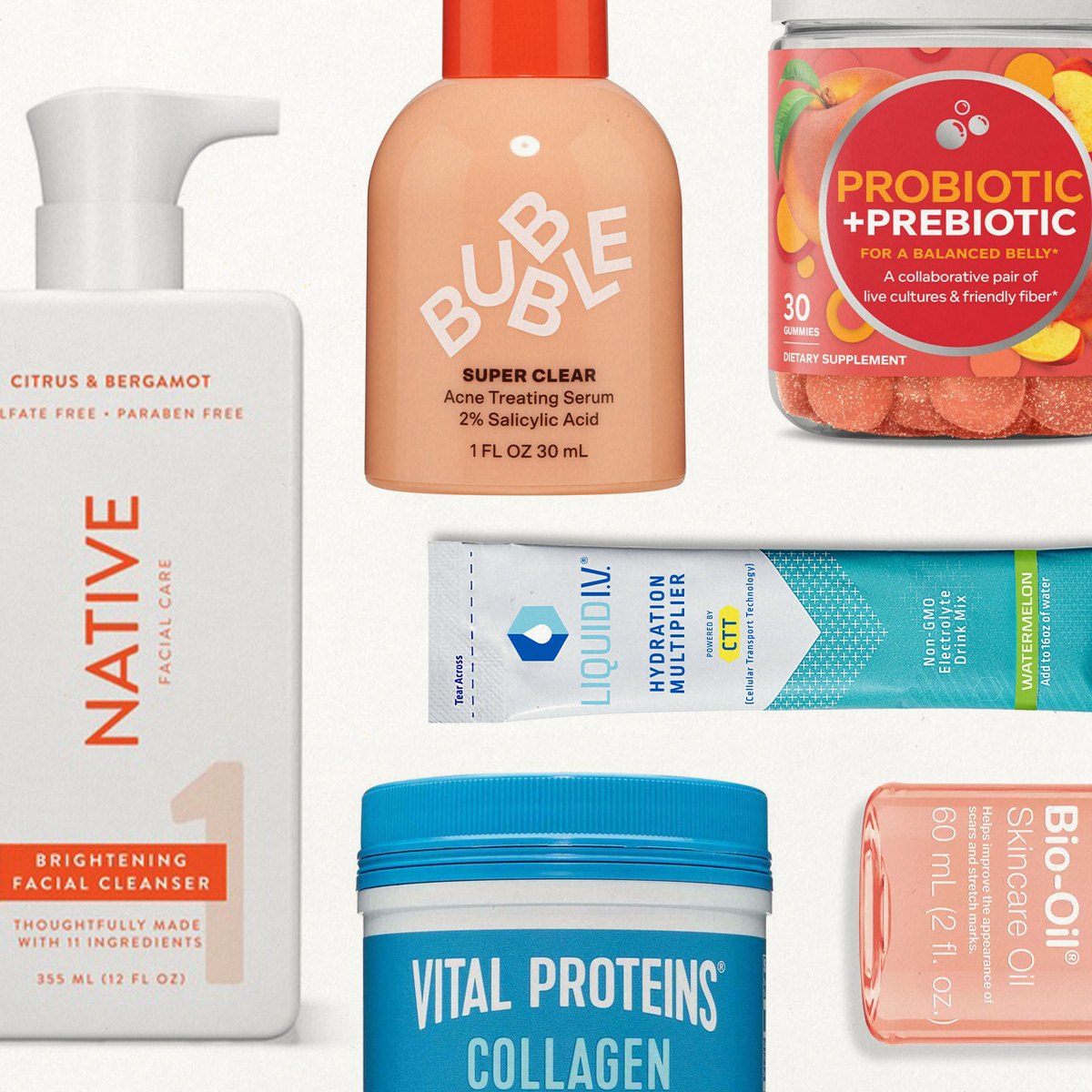 The Best Under-$38 Wellness Buys I Could Find
The Best Under-$38 Wellness Buys I Could FindSponsor Content Created With CVS
By Emma Walsh
-
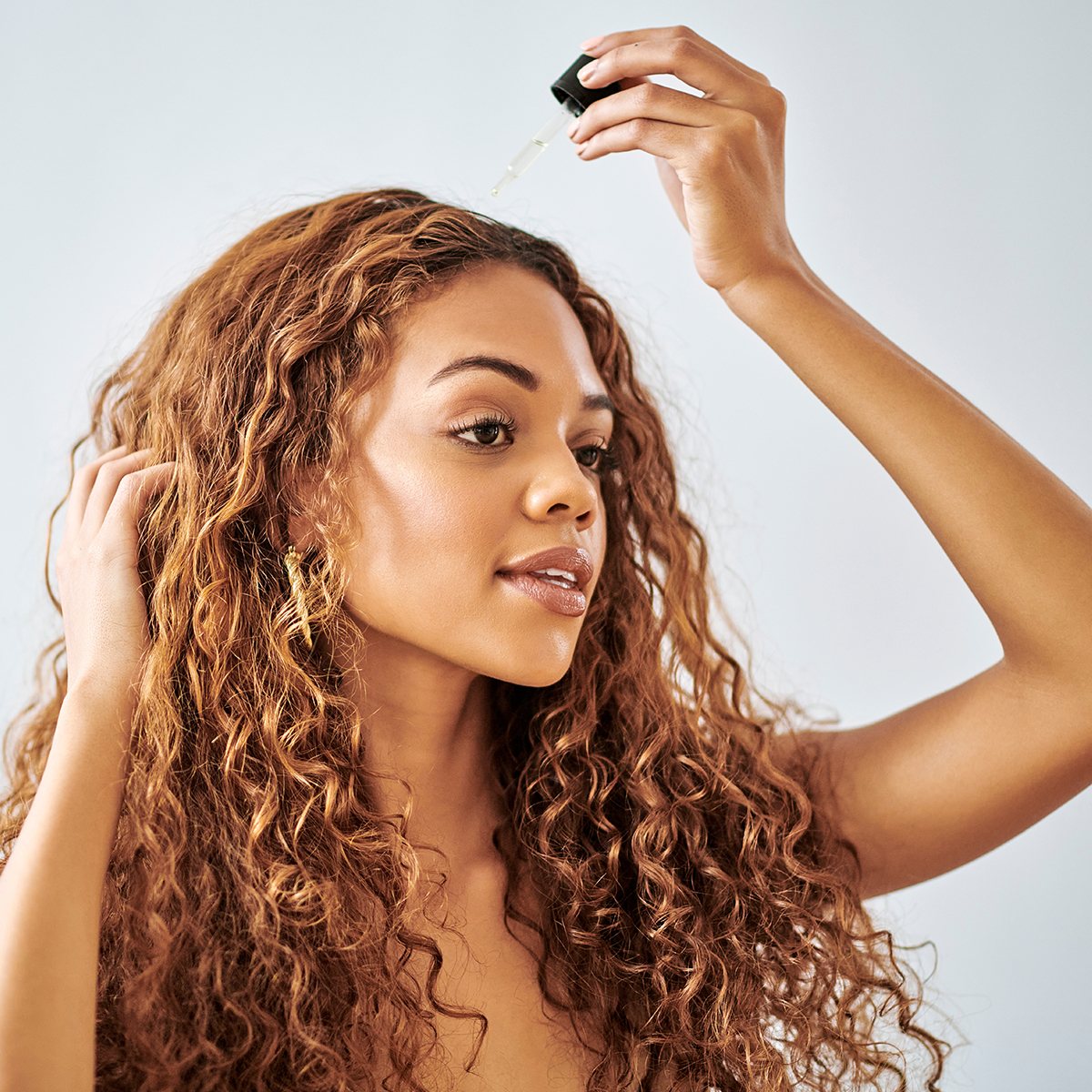 Using Rosemary Oil for Hair Growth Has Gone Viral—But Is It Worth the Buzz?
Using Rosemary Oil for Hair Growth Has Gone Viral—But Is It Worth the Buzz?A dermatologist set me straight—and on the path to longer, stronger hair.
By Samantha Holender
-
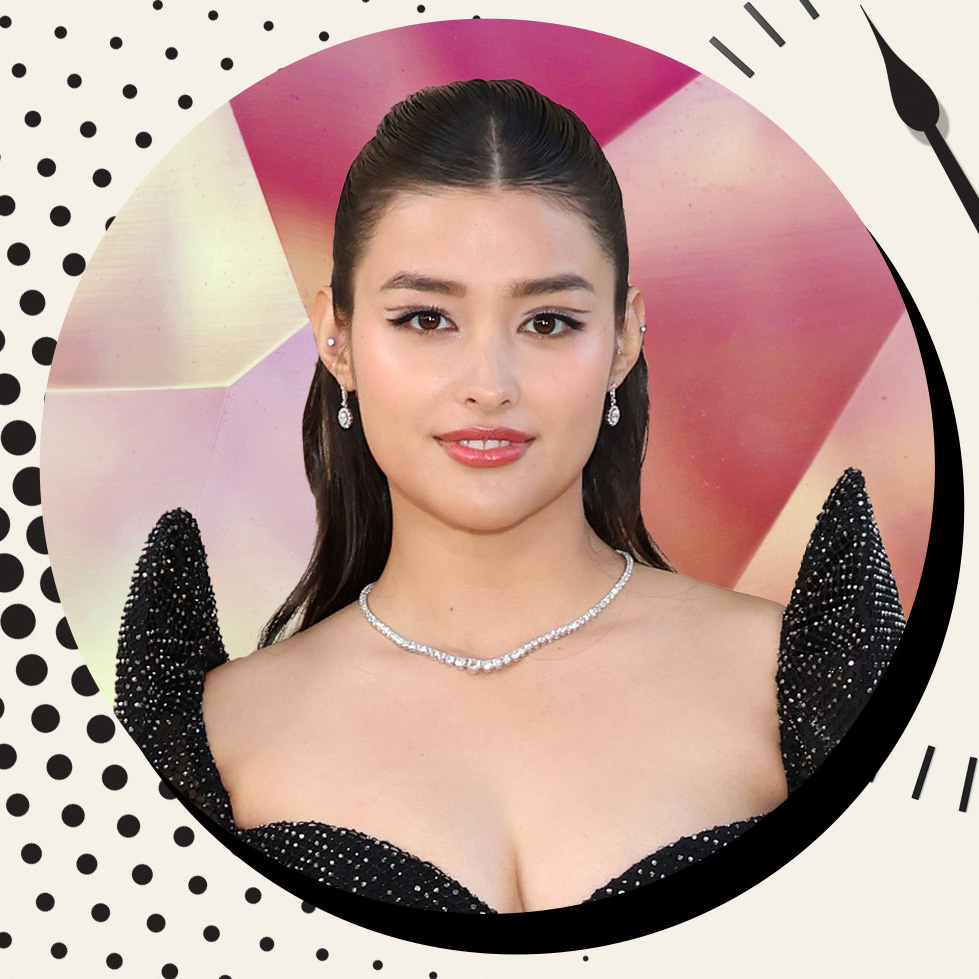 You’ll Never Guess Where Liza Soberano Applies Her Blush
You’ll Never Guess Where Liza Soberano Applies Her Blush\201cI kind of go crazy with it.\201d
By Samantha Holender
-
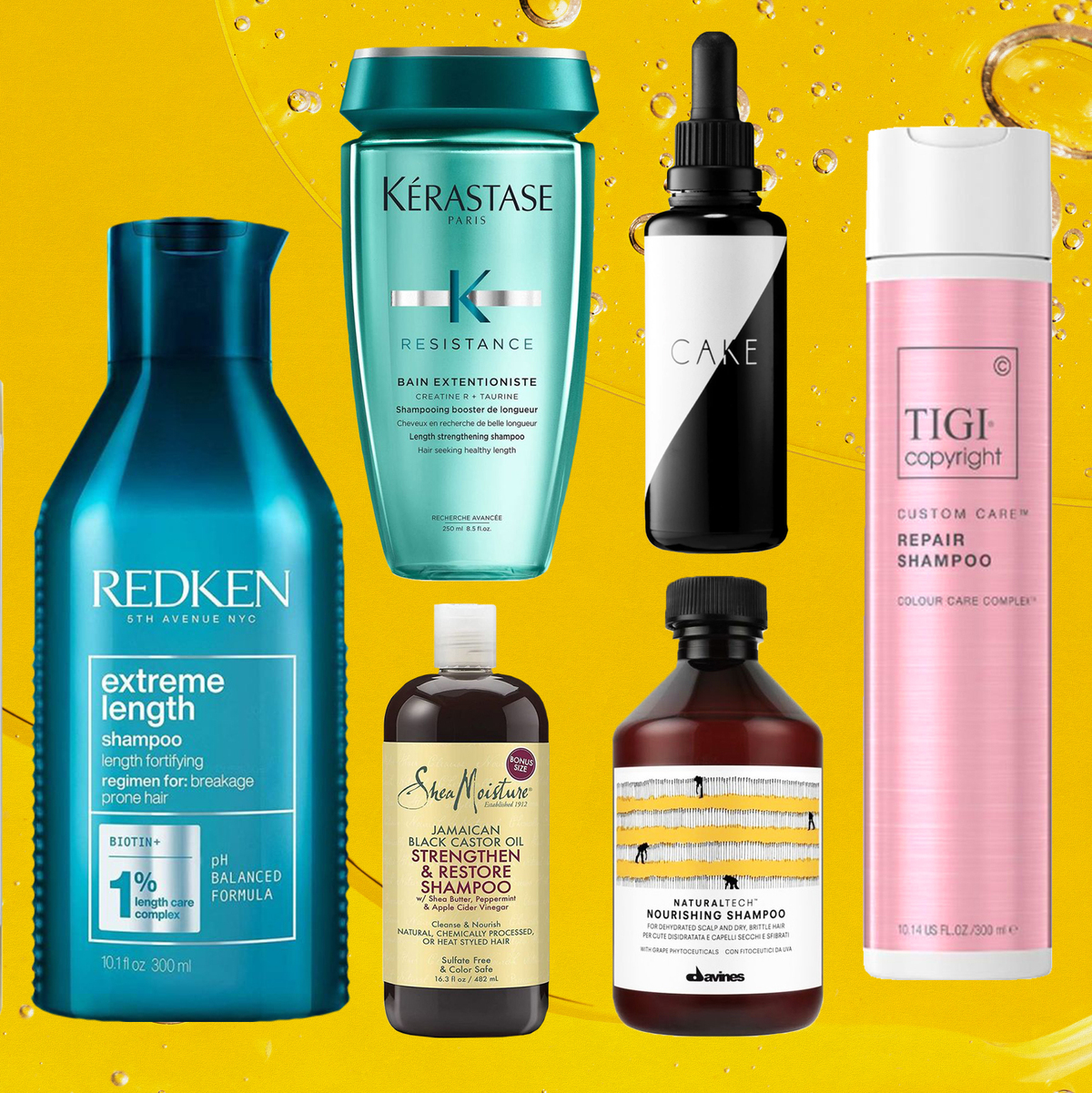 The 15 Best Hair Growth Shampoos of 2025, According to Experts
The 15 Best Hair Growth Shampoos of 2025, According to ExpertsRapunzel hair, coming right up.
By Marisa Petrarca
-
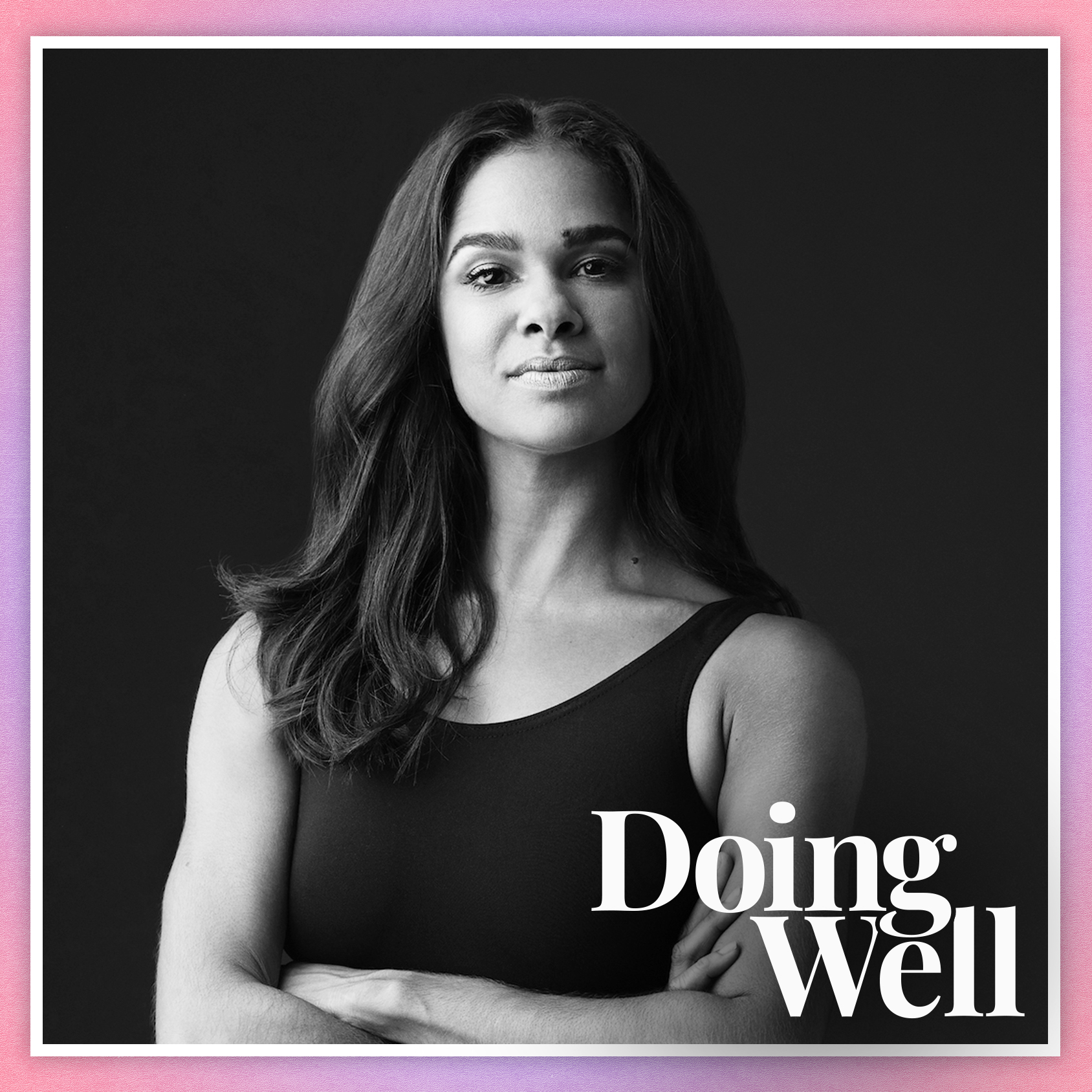 Misty Copeland Is Stepping Beyond Ballet
Misty Copeland Is Stepping Beyond BalletThe professional ballerina talks nutrition, education, finding balance.
By Gabrielle Ulubay